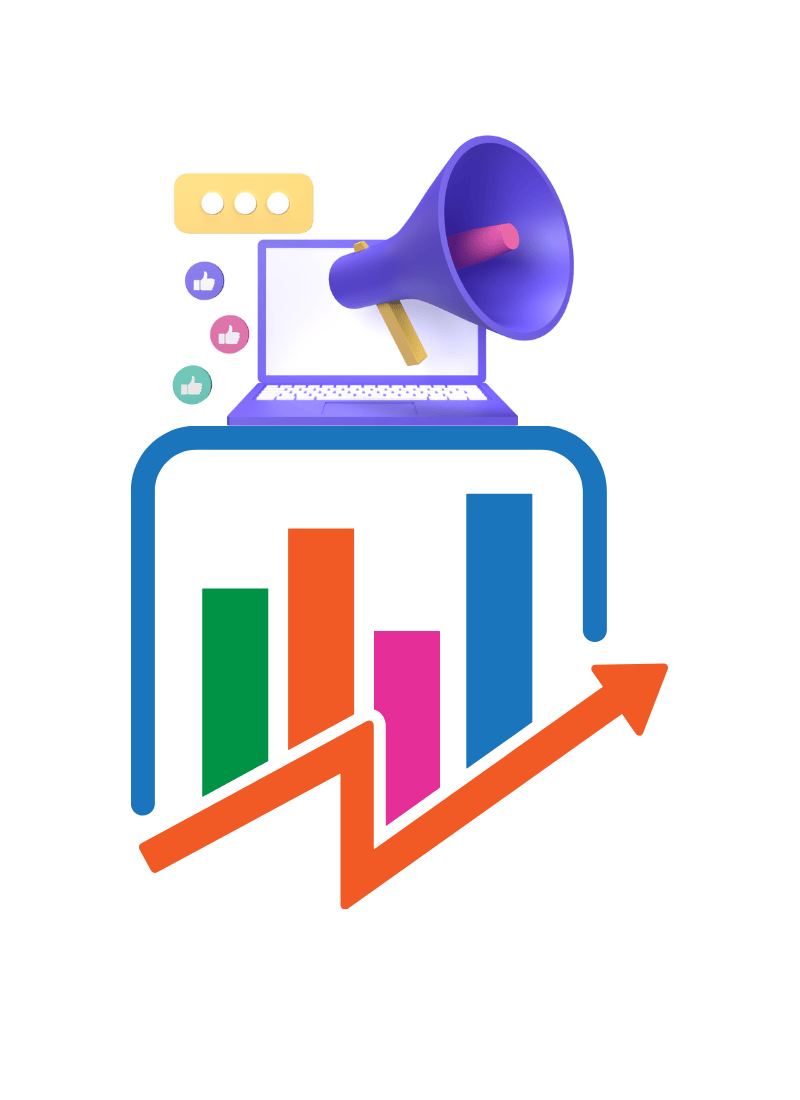PPC B2B lead generation has evolved into a sophisticated, data-driven discipline that requires strategic precision to achieve meaningful results. As we navigate through 2025, businesses are witnessing unprecedented competition for high-value keywords, with some sectors experiencing cost-per-click rates exceeding $500 per click. However, with the right blueprint and understanding of current market dynamics, B2B companies can leverage PPC advertising to generate qualified leads, maximize ROI, and outperform competitors in increasingly competitive digital landscapes.
Understanding PPC B2B Lead Generation in 2025
The landscape of PPC B2B lead generation has transformed dramatically, with artificial intelligence and automation reshaping how businesses approach paid advertising campaigns. Unlike traditional B2C campaigns that focus on immediate conversions, B2B PPC requires a nuanced understanding of longer sales cycles, multiple decision-makers, and complex purchasing processes that can span several months.
Modern B2B buyers conduct extensive research before engaging with sales teams, making PPC campaigns crucial for capturing attention during these early research phases. The integration of AI-powered tools has enabled marketers to automate key elements such as bid adjustments, audience targeting, and ad placement, thereby maximizing return on investment. This shift toward automation allows marketing teams to focus more on strategic planning rather than manual campaign management tasks.
Furthermore, the continued relevance of PPC in B2B marketing stems from its ability to provide measurable results while enabling businesses to control costs and target audiences effectively. As technology advances, PPC has expanded beyond traditional search ads to encompass programmatic advertising, video content, and voice search optimization, creating multiple touchpoints throughout the buyer’s journey.
Most Expensive PPC Keywords for B2B Lead Generation
Understanding the cost dynamics of high-value keywords is essential for effective budget allocation and ROI optimization. The most expensive PPC keywords in 2025 continue to cluster around industries with substantial profit margins and urgent consumer needs, creating valuable insights for B2B marketers across various sectors.
According to recent industry analysis, the top expensive keyword categories include insurance at $54.91 CPC, loans at $44.28 CPC, and mortgage-related terms at $47.12 CPC. Legal services dominate the upper echelons with attorney-related keywords reaching $47.07 CPC, while specialized legal terms like “personal injury lawyer” or “mesothelioma attorney” consistently exceed $500 per click, with niche phrases potentially hitting $1000 or more in highly competitive markets.
Table: Top 10 Most Expensive PPC Keywords by Industry (2025)
| Industry | Average CPC | Example Keywords | Competition Level |
|---|---|---|---|
| Insurance | $54.91 | Business insurance, liability coverage | Very High |
| Attorney/Legal | $47.07 | Corporate lawyer, business litigation | Extreme |
| Mortgage | $47.12 | Commercial mortgage, business loans | Very High |
| Loans | $44.28 | Business financing, equipment loans | High |
| Lawyer | $42.51 | Employment attorney, contract law | Very High |
| Donate | $42.02 | Corporate giving, charity partnerships | Moderate |
| Degree | $40.61 | Executive education, MBA programs | High |
| Credit | $36.06 | Business credit, corporate financing | High |
| Hosting | $31.91 | Enterprise hosting, cloud solutions | Moderate |
| Claim | $45.51 | Insurance claims, business recovery | High |
The common factor among these expensive keywords relates to searches with urgent intent and high conversion value. When businesses require immediate solutions, companies can justify higher advertising costs, particularly in sectors where a single successful conversion can generate substantial revenue over extended periods.
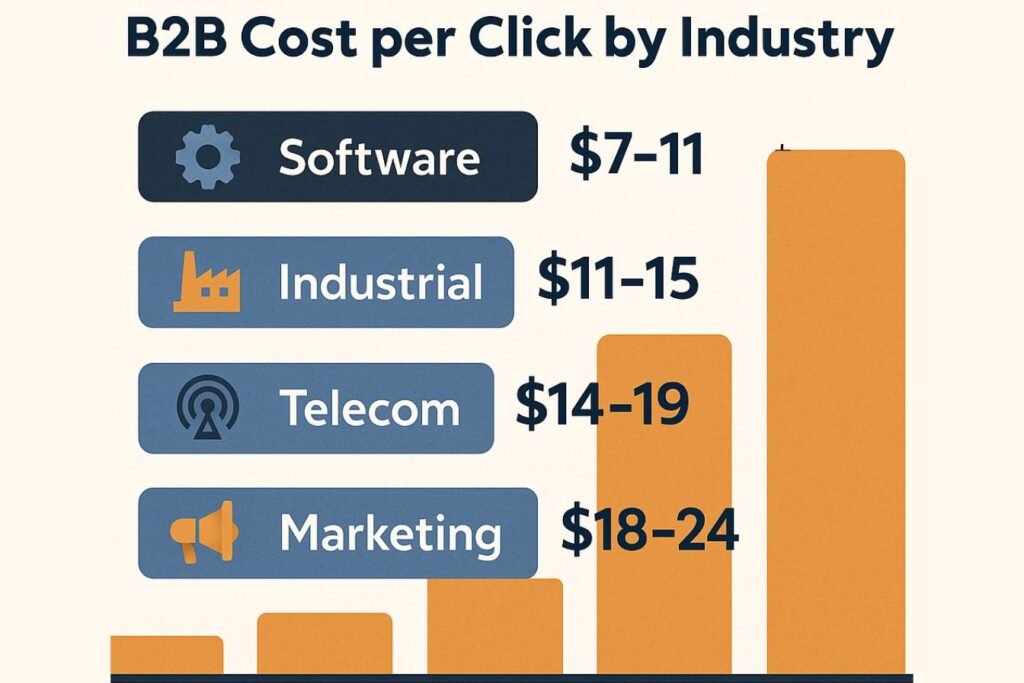
Top-Performing PPC Keywords Dominating 2025
The PPC landscape in 2025 is increasingly driven by automation and artificial intelligence, influencing everything from campaign structure and targeting to content creation and optimization. Understanding which keywords are performing exceptionally well requires analyzing both cost efficiency and conversion potential across various B2B sectors.
High-performing B2B keywords in 2025 typically exhibit several characteristics: they demonstrate clear commercial intent, target specific pain points, and align with urgent business needs. Software-as-a-Service (SaaS) companies are finding success with keywords like “enterprise software solutions,” “business automation tools,” and “cloud-based platforms,” which balance reasonable CPCs with strong conversion potential.
Professional services firms are leveraging location-based keywords combined with service specifications, such as “business consulting [city name]” or “digital transformation services,” which provide geographic targeting advantages while maintaining competitive costs. Meanwhile, manufacturing and industrial companies are seeing strong performance from specification-driven keywords that target technical decision-makers researching equipment purchases.
The rise of voice search integration has also influenced keyword performance, with conversational and longer search phrases gaining prominence. B2B marketers are increasingly optimizing for natural language queries such as “What’s the best CRM software for small businesses?” rather than traditional short-tail keywords.
Step-by-Step PPC B2B Lead Generation Blueprint
Keyword Research and Selection for B2B Lead Generation
Effective B2B PPC campaigns begin with comprehensive keyword research that goes beyond traditional volume and competition metrics. Start by analyzing your ideal customer personas and mapping their search behaviors throughout the buying journey, from initial problem recognition through vendor evaluation and final selection processes.
Utilize advanced keyword research tools to identify long-tail keywords that indicate commercial intent, such as “best [solution] for [industry]” or “[problem] solutions for [company size].” These keywords typically have lower competition but higher conversion rates because they target users closer to making purchasing decisions. Additionally, consider negative keywords that exclude irrelevant traffic, such as “free,” “DIY,” or “student,” which typically indicate non-commercial intent.
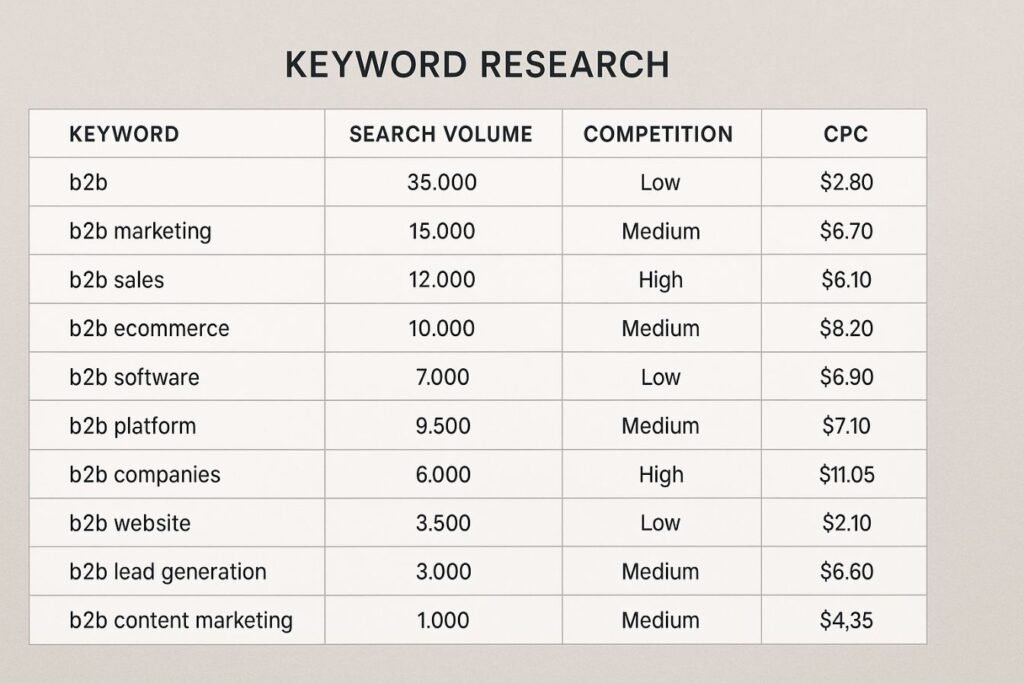
Campaign Structure and Setup
Organize your PPC B2B lead generation campaigns using a structured approach that separates different product lines, geographic regions, and buyer personas into distinct campaign groups. This granular organization enables precise budget allocation, targeted messaging, and accurate performance measurement across different segments of your target market.
Create tightly themed ad groups with 5-15 closely related keywords per group, ensuring that ad copy directly relates to the keywords within each group. Implement a logical naming convention that includes campaign type, target audience, geographic location, and product category, making campaign management more efficient as your account scales.
Advanced Targeting Strategies for B2B Lead Generation
Modern PPC platforms offer sophisticated targeting options that enable precise audience segmentation based on professional attributes, company characteristics, and behavioral indicators. Utilize LinkedIn’s professional targeting features for platforms that support it, including job titles, company size, industry classifications, and professional interests.
Implement remarketing strategies that target website visitors who have engaged with specific content pieces, downloaded resources, or visited pricing pages without converting. These audiences typically demonstrate higher conversion rates because they have already shown interest in your solutions. Layer demographic and firmographic data to create highly specific audience segments that align with your ideal customer profiles.
Bid Management and Optimization
Adopt smart bidding strategies that leverage machine learning algorithms to optimize bids automatically based on conversion likelihood. Target CPA (Cost Per Acquisition) and Target ROAS (Return On Ad Spend) bidding strategies are particularly effective for B2B campaigns where lead quality matters more than raw volume.
Monitor performance metrics beyond basic click-through rates, focusing on lead quality indicators such as marketing qualified leads (MQLs), sales qualified leads (SQLs), and ultimately, closed-won revenue attribution. Adjust bids based on time-of-day and day-of-week performance patterns, as B2B prospects typically engage during business hours and weekdays.
AI and Automation in PPC B2B Lead Generation
Artificial intelligence and machine learning have revolutionized PPC B2B lead generation by enabling more sophisticated targeting, automated optimization, and predictive analytics capabilities. AI-powered tools can analyze patterns in user behavior, making it easier to predict which advertisements are likely to perform best with specific audience segments.
Automated bidding strategies allow advertisers to focus on broader campaign goals rather than micromanaging individual keyword bids, ensuring optimal cost-efficiency and improved results. These systems continuously analyze performance data and adjust bids in real-time based on factors such as device type, location, time of day, and user behavior patterns.
The implementation of AI extends beyond bidding to include automated ad creation, where machine learning algorithms generate and test multiple ad variations to identify the highest-performing combinations. This approach is particularly valuable for B2B marketers who need to create numerous ad variations for different buyer personas and product categories.
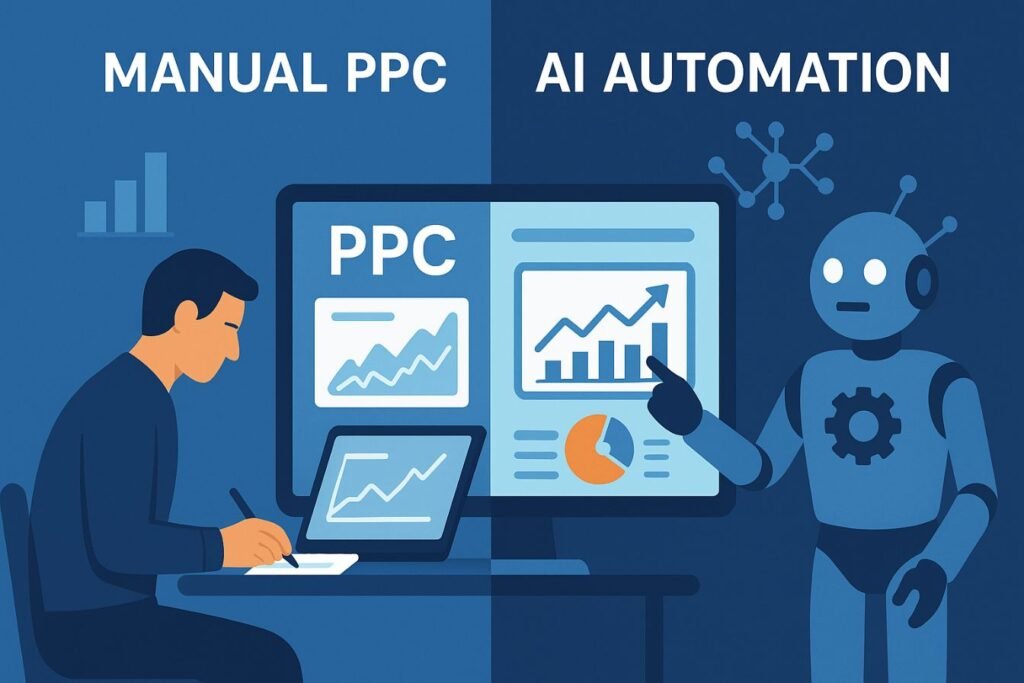
Voice Search and PPC B2B Strategies
Voice search integration represents a significant opportunity for B2B lead generation, as business professionals increasingly use voice-activated devices and assistants to conduct research and gather information. Voice queries typically use conversational language and complete questions rather than fragmented keyword phrases, requiring adjustments to traditional keyword strategies.
Optimize for question-based queries that reflect how business professionals naturally speak when seeking solutions, such as “What’s the best project management software for remote teams?” or “How do I choose enterprise cybersecurity solutions?” These longer, more conversational keywords often have lower competition while targeting users with specific informational or commercial intent.
Develop FAQ-style content and landing pages that directly answer common voice search queries related to your products or services. This approach not only improves voice search performance but also enhances overall user experience by providing immediate answers to prospect questions.
Measuring ROI in PPC B2B Lead Generation
Accurate ROI measurement in B2B PPC requires sophisticated attribution modeling that accounts for longer sales cycles and multiple touchpoints throughout the buyer’s journey. Implement conversion tracking that captures various engagement levels, from initial lead generation through final purchase decisions, enabling comprehensive performance analysis.
Establish clear definitions for lead quality metrics, including marketing qualified leads (MQLs), sales qualified leads (SQLs), and customer lifetime value (CLV). These metrics provide more meaningful insights than basic click-through rates or cost-per-click measurements, enabling better optimization decisions and budget allocation strategies.
Table: Key B2B PPC Metrics and Benchmarks
| Metric | Definition | Industry Benchmark | Target Range |
|---|---|---|---|
| Cost Per Lead (CPL) | Total spend ÷ Total leads | $150-$300 | Varies by industry |
| Lead-to-Customer Rate | Customers ÷ Total leads | 2-5% | 3-8% |
| Customer Acquisition Cost | Total spend ÷ New customers | $500-$1,500 | ROI dependent |
| Return on Ad Spend (ROAS) | Revenue ÷ Ad spend | 3:1 to 5:1 | 4:1 minimum |
| Quality Score | Platform assessment | 6-8 average | 8+ target |
Utilize multi-touch attribution models that credit various touchpoints throughout the conversion path, providing a more accurate picture of how different campaigns and keywords contribute to final conversions. This approach is particularly important for B2B marketers dealing with complex, multi-stakeholder purchasing processes.
Common Challenges and Solutions in PPC B2B Lead Generation
B2B PPC campaigns face unique challenges that require specialized approaches and solutions. Lead quality often varies significantly, with some campaigns generating high volumes of unqualified prospects who don’t match ideal customer profiles. Address this challenge by implementing negative keywords, refining targeting parameters, and creating more specific ad copy that qualifies prospects before they click.
Budget allocation across multiple campaigns and keywords can become complex, especially when dealing with expensive keywords that exceed $50 per click. Implement portfolio-level bidding strategies that automatically redistribute budgets based on performance, ensuring that high-performing campaigns receive adequate funding while underperforming campaigns are scaled back appropriately.
Competition intensity continues to increase across most B2B sectors, with businesses allocating higher budgets to online marketing efforts. Combat this by focusing on long-tail keywords with lower competition, developing unique value propositions that differentiate your offerings, and optimizing for quality score improvements that reduce effective CPCs.
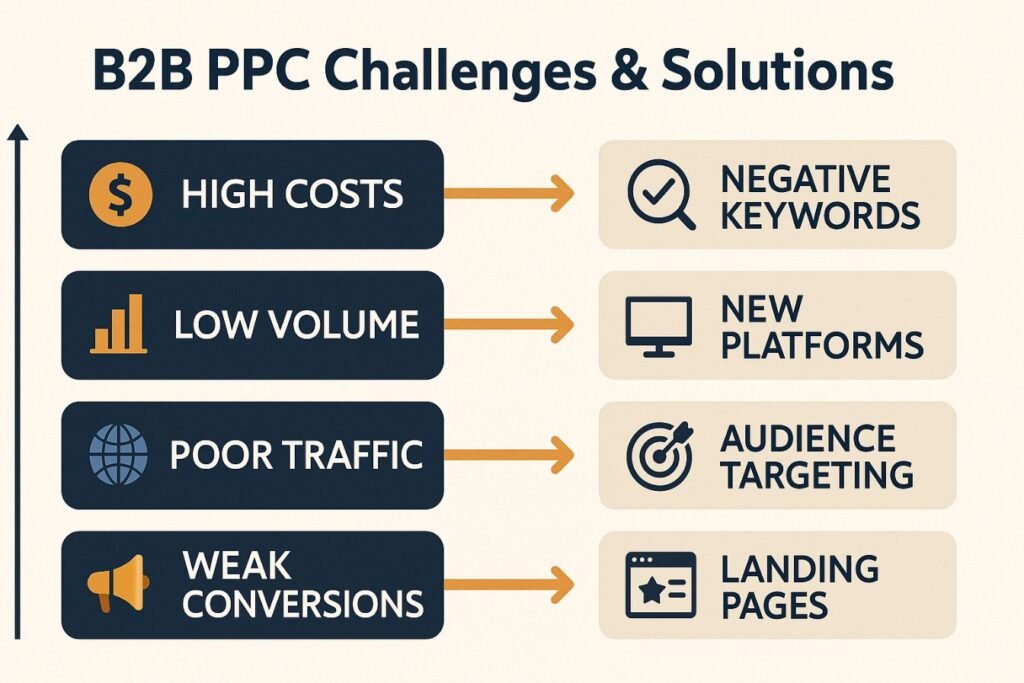
Future-Proofing Your PPC B2B Lead Generation Strategy
As we move deeper into 2025, several emerging trends will continue shaping PPC B2B lead generation strategies. The further use of automation will reduce advertiser control while increasing efficiency, requiring marketers to focus more on strategic planning and creative differentiation rather than tactical campaign management.
Privacy challenges for advertisers will intensify, necessitating first-party data collection strategies and consent-based targeting approaches. Develop comprehensive data collection systems that capture prospect information through valuable content exchanges, enabling more effective remarketing and audience development despite increasing privacy restrictions.
The importance of diversifying beyond Google Ads will grow, with platforms like Bing Ads and social media campaigns providing alternative channels for B2B lead generation. Explore emerging platforms and ad formats that align with your target audience’s behavior patterns and media consumption preferences.
Leveraging MarketingOWO’s Highest PPC Keywords for Maximum Impact
Understanding the relationship between high-cost keywords and conversion potential enables more strategic campaign development and budget allocation. While expensive keywords often indicate strong commercial intent, the key lies in balancing cost with conversion probability and customer lifetime value.
Develop a portfolio approach that includes both high-cost, high-intent keywords and lower-cost, higher-volume terms that capture prospects earlier in the research process. This strategy provides multiple touchpoints throughout the buyer’s journey while optimizing overall campaign efficiency and ROI performance.
Image Prompt: ROI calculation dashboard showing the relationship between keyword costs, conversion rates, and lifetime customer value with interactive charts and performance indicators
Building an effective PPC B2B lead generation strategy requires understanding market dynamics, leveraging emerging technologies, and maintaining focus on lead quality over quantity. The blueprint outlined above provides a framework for developing campaigns that generate qualified prospects while optimizing costs and maximizing return on investment.
Success in 2025’s competitive PPC landscape depends on embracing automation while maintaining strategic oversight, understanding the value drivers behind expensive keywords, and continuously adapting to evolving search behaviors and platform capabilities. By implementing these strategies systematically and measuring performance consistently, B2B organizations can achieve sustainable growth through well-executed PPC campaigns.
Ready to transform your B2B lead generation results? Start implementing this blueprint today and discover how strategic PPC management can drive qualified prospects and accelerate business growth. Share your experiences and challenges in the comments below, or explore our additional resources on advanced PPC optimization strategies. For personalized guidance on implementing these strategies for your specific industry and target market, consider consulting with PPC specialists who understand the nuances of B2B lead generation campaigns.




